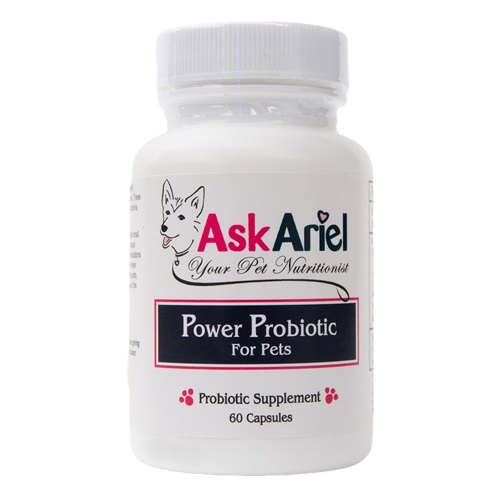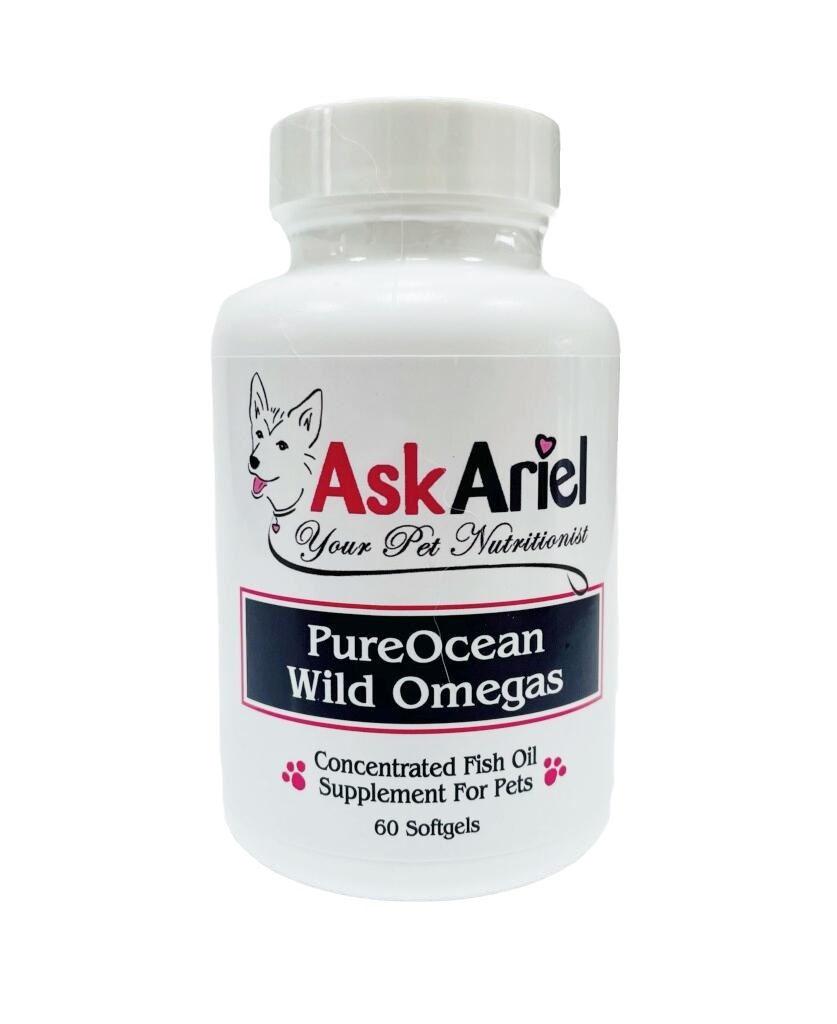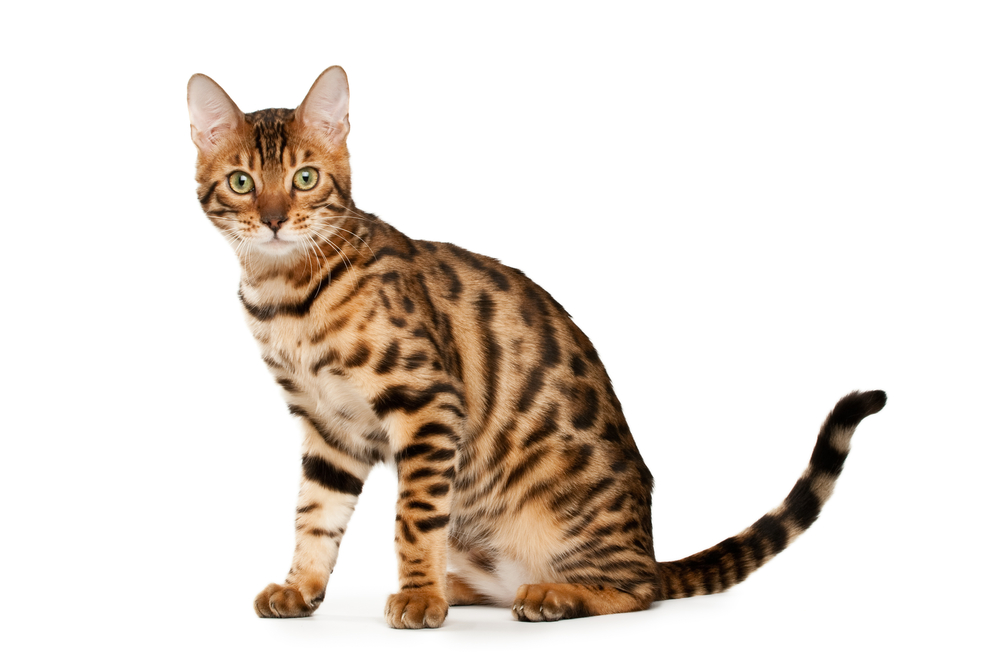|
Relief For Your Itchy Cat: Supplements For Cats With Allergies
Do you have an itchy cat? If your cat is experiencing itching, sneezing, watery eyes, hair loss, ear infections and diarrhea these could be signs of allergies. You can help your cat find relief by feeding a hypoallergenic diet and using our specially-formulated supplements for cats with allergies. At Ask Ariel, you can count on us for effective solutions and our dedicated customer service team is happy to help.
Cat Allergy Supplements
 Immune Support Kit – The Immune Support Kit is an effective treatment for cats with allergy symptoms such as sneezing, watery eyes, itching and scratching. Immune Support Kit – The Immune Support Kit is an effective treatment for cats with allergy symptoms such as sneezing, watery eyes, itching and scratching.
Easy to use drops (with minimal smell and taste - no alcohol)
Fight infections to reduce nasal discharge and sneezing
Clears up sinuses, nasal tract and improves breathing
Gentle, natural remedies that can safely be used on an ongoing basis
Acts as an immune booster for cats with allergies
Contains three tasteless, natural remedies that provide relief by calming infection and inflammation
The natural remedies in the Immune Support Kit can also be purchased individually. Please click on the links below for more detailed information about each product.
NOT Drops - NOT Drops help control harmful bacteria and restore gut flora balance, improving your cat's immune function and digestion.
QUENT Drops - Natural antiviral for cats. QUENT Drops target the lung and upper respiratory system. QUENT and NOT Drops work together to help relieve cat sneezing, watery eyes, and ear infections.
Silver Support - An all-natural at-home supplement for cats with allergies. Helps your cat recover from a bacterial infection or viral flare-up. It is a broad-spectrum antimicrobial and well tolerated even by tiny pets. Can be used topically to provide itch relief for cats.
 Power Probiotic - Probiotics for cats with allergies promote a healthy balance of good bacteria. This is important because your cat's microbiome (the community of organisms in their digestive system) directly influences their immune system and how they respond to allergies. Probiotics can aid in the absorption of essential nutrients, contributing to overall skin and coat health. They can also help reduce GI issues associated with food allergies, such as diarrhea. Using Power Probiotic is essential if your cat has taken steroids or antibiotics, as these medications reduce the population of friendly bacteria. Friendly bacteria help fight off bad bacteria to help keep your cat healthy. Pure, safe and natural - most cats love the taste of Power Probiotic. Power Probiotic - Probiotics for cats with allergies promote a healthy balance of good bacteria. This is important because your cat's microbiome (the community of organisms in their digestive system) directly influences their immune system and how they respond to allergies. Probiotics can aid in the absorption of essential nutrients, contributing to overall skin and coat health. They can also help reduce GI issues associated with food allergies, such as diarrhea. Using Power Probiotic is essential if your cat has taken steroids or antibiotics, as these medications reduce the population of friendly bacteria. Friendly bacteria help fight off bad bacteria to help keep your cat healthy. Pure, safe and natural - most cats love the taste of Power Probiotic.

PureOcean Wild Omegas For Cats - Provides a convenient way to add omega-3s to your cat's diet. Common symptoms of allergies in cats include inflammation of the skin, ear or digestive tract. Omega-3s can help reduce this inflammation - alleviating itching, redness and discomfort. They can also help with dry, flaky skin and cat dandruff. PureOcean Wild Omegas are made from wild-caught sardines, anchovies and mackerel. They have a natural fishy flavor and many cats love the taste. Excellent value as our fish oil for cats is concentrated. One bottle lasts 4-6 months for cats.
.jpeg) AllerEaze - AllerEaze can provide itch relief for cats. Quercetin has been scientifically proven to naturally reduce a pet's histamine response. AllerEaze contains quercetin and nettles to help reduce scratching and itching associated with seasonal allergies. Using AllerEaze with Power Probiotic has been especially helpful for cats with allergies as together they have a synergistic effect on a cat's immune system and overall well-being. Note: Most cats do not like the taste of any herbal supplements. The powder from the AllerEaze capsules must be mixed with water and given with an oral syringe (not included). AllerEaze - AllerEaze can provide itch relief for cats. Quercetin has been scientifically proven to naturally reduce a pet's histamine response. AllerEaze contains quercetin and nettles to help reduce scratching and itching associated with seasonal allergies. Using AllerEaze with Power Probiotic has been especially helpful for cats with allergies as together they have a synergistic effect on a cat's immune system and overall well-being. Note: Most cats do not like the taste of any herbal supplements. The powder from the AllerEaze capsules must be mixed with water and given with an oral syringe (not included).
Minianne
"Mini and I found each other in 2015 after I had finally gotten home from the hospital after being in a bad car accident. I had to have my leg amputated, and when I found her, she was very sick with an upper respiratory infection and feline herpes. So we got better together! Mini still has some residual health issues like feline asthma and severe allergies, but she takes AllerEaze and Power Probiotic which have helped her tremendously! Since she’s started taking these supplements, she doesn’t have nearly as many asthma attacks or sneezing fits. Her ears used to itch her constantly, which the vet said was related to her allergies. Now, after taking AllerEaze for several months, that problem is also under control. I’m furrever grateful to Ask Ariel for making supplements that actually work, and that I can feel good about giving to my little one!" - Julianne, Pennsylvania
How Do You Know If Your Cat Has Allergies?
Cats can have itchy skin, GI upset or respiratory symptoms. Here are some common signs and symptoms that may indicate your cat has allergies:
- Itching and Scratching: Persistent itching and scratching, especially around the face, ears, neck, and paws, are common signs of allergies in cats. Excessive scratching can lead to hair loss and skin lesions.
- Skin Issues: Allergies can cause skin problems such as redness, inflammation, hives, or raised bumps. You might notice your cat's skin looks irritated or has sores.
- Gastrointestinal Issues: Food allergies can lead to digestive problems like vomiting and diarrhea. If your cat experiences these symptoms frequently, it could be related to allergies.
- Sneezing and Respiratory Symptoms: Environmental allergens like pollen or dust mites can trigger sneezing, coughing, and nasal discharge in allergic cats. These symptoms may mimic upper respiratory infections.
- Watery Eyes: Excessive tearing or watery eyes can be a sign of allergies, especially if it's accompanied by other allergy-related symptoms.
- Ear Infections: Cats with allergies may develop recurring ear infections, which can cause discomfort and a foul odor
- Chronic Ear and Skin Infections: Some cats with allergies are prone to chronic ear and skin infections. These infections can be challenging to treat and may recur.
- Behavioral Changes: Allergies can make your cat uncomfortable and irritable, potentially leading to changes in behavior, such as increased irritability or restlessness.
Boris
"Boris is my (now) 10 year-old domestic medium haired cat. He's a gentle and loving boy. He's had issues with allergies and feline herpes since he was 1 year old, which manifest in sneezing and runny eyes with discolored discharge.
A couple of years ago, I found AskAriel. Boris was switched to a novel food source, and I put him on NOT Drops in addition to his daily l-lysine. The NOT Drops keep his eye issues mostly under control, and I can definitely tell when I've skipped a dose.
Thanks for helping my Bobo!" - Pamela, Illinois
What Causes Allergies In Cats?
Cats can suffer from a range of allergies that can affect their overall health and well-being. These feline allergies come in various forms, from reactions to environmental triggers like pollen and dust to food sensitivities. Here are the most common types of cat allergies:
- Flea Allergy Dermatitis (FAD): Flea bites can trigger an allergic reaction in some cats, leading to intense itching, hair loss, and skin inflammation. Even a single flea bite can cause a reaction in cats with FAD.
- Food Allergies: Cats can develop allergies to specific ingredients in their food, most commonly proteins such as beef, chicken, fish, and dairy. Food allergies can lead to skin problems, digestive issues (vomiting and diarrhea), and even respiratory symptoms.
- Environmental Allergies: Cats can be allergic to environmental allergens like pollen, dust mites, molds, and grasses. These allergies often manifest as skin problems, including itching, redness, and chronic ear infections.
- Contact Allergies: Some cats can develop allergies to substances they come into direct contact with, such as certain cleaning products, fabrics, or grooming products. Contact allergies can lead to skin irritation and dermatitis at the contact site.

What Cat Allergy Supplements Can Help?
Below are supplement ingredients that have been researched to be effective for cats with allergies:
- Omega-3 Fatty Acids - Omega-3 fatty acids sourced from fish oil, have anti-inflammatory properties and can help reduce the severity of allergic reactions in cats. They can help reduce inflammation and itchiness. Supplemental fish oil is used as adjunctive
therapy for inflammatory skin diseases [1]. Allergies in cats can also lead to dry, flaky skin and dandruff in cats. Omega-3s can support skin health by moisturizing the skin and promoting a healthy skin barrier, which can help prevent allergens from penetrating the skin. Omega-3s can reduce dryness and can improve their overall appearance, giving them a soft, shiny coat.
- Probiotics - Probiotics contain beneficial bacteria that can help regulate the immune system and gut health. They may be especially helpful for cats with food allergies or sensitivities. Cats with allergies may experience digestive problems like diarrhea, vomiting, or constipation. Probiotics for cats with allergies can improve their overall well-being.
- Quercetin - Quercetin is a flavonoid, a type of plant compound, that has natural antihistamine properties. It may help reduce allergy symptoms by inhibiting the release of histamines and other allergic/inflammatory substances [2] in the body. Quercetin has been studied for its ability to reduce inflammation, which is a common feature of allergies in cats. By decreasing inflammation, quercetin may help alleviate symptoms such as itching, redness, and swelling.
- Homeopathies - Certain homeopathic remedies, like Penicillium notatum (chrysogenum) and Penicillium frequentans, have antibacterial properties that can provide anti-itch relief for cats. They may help to control and eliminate infections, which can reduce inflammation associated with the immune response. Ionic or colloidal silver is an antimicrobial supplement. It helps to reduce infection while not killing off friendly bacteria. Silver supplements can provide immune system support and topical cooling relief for an itchy cat.
Rocky
"Rocky, our 16 year old kitty, is doing quite well. At 15, he developed an allergy and we tried everything. However, diet suggestions from AskAriel and a process of elimination of different foods, we found that he was allergic to chicken. He does NOT Drops every night, mixed in a very small amount of his high quality canned food.
When he has an occasional flare-up of the Herpes virus, we alternate NOT Drops and QUENT Drops at night. He is doing so well. People can't believe he is 16... one happy camper in Eastern, NC." - Deborah, North Carolina
Cat Allergy Care: Lifestyle Tips
How do you treat a cat with allergies? Is your cat itching but no fleas? The first step in treating allergies in cats is to try to identify the allergen. Environmental allergy testing by your veterinarian and food allergy elimination trials can be helpful if you are able to identify some allergens and reduce exposure to them. Feeding a low carbohydrate, hypoallergenic diet can be especially helpful. On the order form at checkout, please include your cat's diet and treats and we can provide diet tips on the packing slip that comes with your order. Along with feeding a hypoallergenic diet, here are additional tips to give your cat relief from allergies:
- Use cat allergy supplements
- Feed a hypoallergenic novel protein diet to reduce inflammation.
- Give your cat itch relief by protecting them from fleas.
- Reduce allergens by cleaning regularly, using air purifiers, and keeping windows closed during pollen season.
- Regular grooming can help remove allergens from the cat's fur. Brushing and bathing (if tolerated by the cat) can be especially beneficial for cats with skin allergies.
Sources
1. https://navc.com/wp-content/uploads/sites/4/2016/08/TVP_2016-0910_NN-FattyAcids.pdf
2. https://www.akspublication.com/Paper05_Jul-Dec2007_.pdf
|